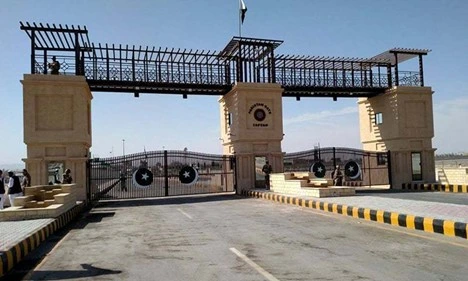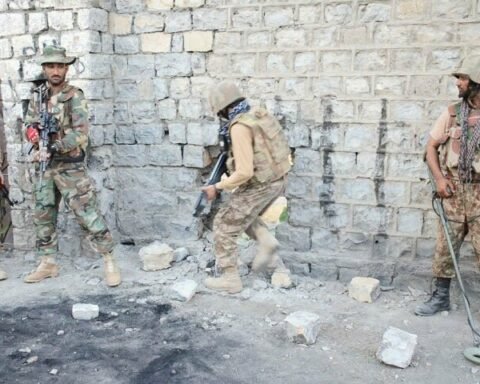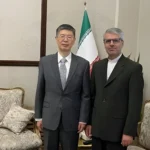With a digitalized world and building social media influence, disinformation campaigns have become one of the most used methods by aggressive regional and international forces to cause confusion, distrust in others and degrade sovereign statehood relations. Such an evil tendency was seen recently related to the status of Pakistan-Iran border where a stream of crooked and coordinated efforts to spread a misleading narrative has been disseminated on purpose by the anti-Pakistani elements, more so which are affiliated with Afghanistan/Indian sources.
The misinformation that is being propagated implies that the border between Pakistan and Iran is sealed or closed due to matters of security or politics which would be totally untrue given the reality on ground. As a matter of fact, Pakistan-Iran border is still open with normal trade and movement proceeding according to normal channel. The two governments have made no official declaration of any extraordinary closure or upset whether in Islamabad or Tehran. This propaganda of information seems to be a deliberate effort to distort the truth to create a soil of crises, imbalance or failure of diplomacy between two brotherly states of Pakistan and Iran which not only share a long border but have other historical, cultural, religious and economic associations.
These false plots will require contextualization with regards to the current security situation in the region, especially, in the Iranian territory. As seen, after the recent internal developments and security fluctuations within Iran the general quantity of cross border goods movement has actually experienced a momentary decrease. This reduction did not arise out of any national closure of the borders or national political tension, but it is a routine saving and security measures that both countries put to place to guarantee that there is no loss of life and property whilst crossing the borders to trade and travel.
Both Islamabad and Tehran have been prudent to reduce such movements across the crossings during these sensitive periods because it is the common goal that should protect the interests of the travellers and traders. Once again this is not as a result of any contrived or politically derived blockade but as an expediency on safety and the security calculations of Iran as it altered. Actually, some Zairean and other visitors who already had come into Iran have already decided to travel back to Pakistan earlier than the advised times out of advisory or personal security considerations. The changes in traveller behaviour are quite natural in the environment of changing security conditions and cannot be confused with the indication of the diplomatic or military break.
This clarity is highlighted by official communication institutes at Islamabad. Pakistan is always determined to have peaceful, constructive, and neighbourly relations with Iran, realizing the significance of bilateral relationship to the stability in the region growth in the field of trade and religious tourism. It is based on intelligence led estimations, and matters of sovereignty and not even the foreign influence, the biases of sectarian discourse, or the interference of foreign agents determine any possible decisions made regarding the procedures of border control or security measures.
It is also important to understand how the parts of accountable journalism and verification of information should be performed against such delicate orbit of geopolitics. Sensationalizing lies, particularly on social media outlets that are not verified, like X (formerly Twitter), is only helping to exaggerate the aims of the anti-peace information actors who want to disrupt peace in the region and generate fear by means of lies. The two quoted posts by anti-Pakistan accounts explain how misinformation is being comprised and glided towards creating a perception that is not even close to reality.
In accordance with its own practiced policy of being open and proactive in communications, the Pakistan Ministry of Foreign Affairs has categorically denied any abnormal situation in the Pakistan-Iran Border. The ministry now confirms that crossing points along the borders are open, the trade convoys are still continuing and required security checks were being carried out as routine. Local traders, pilgrims and ordinary citizens living close to the border have also been assured by the Pakistani authorities that they are not taking any uncanny advantages to impose on the traders, pilgrims, local people living along the border and that the fluctuation of the activity on the border is transient due to some security issues cropping up within the Iranian land and not due to change of policy by the Pakistani government.
Yet, what is up setting is that this is a struggle going on with some accounts linked to Afghanistan and India having continued to seek to disrupt this stile of tranquillity. These sources have history of peddling propaganda against Pakistan diplomatic and cross border management policies. Their stories usually reflect the larger goal of undermining the success of the foreign policy of Pakistan and create some form of dissension between Pakistan and regional neighbours. In this case, the agenda of portraying false image of the dynamics of Pakistan-Iran border is in line with interests of other parties who desire bad relations between Islamabad and Tehran any sectarian, political or economic reason. Such propaganda style has prevailed in earlier attempts to sabotage Pakistan relations with Afghanistan, China and the Gulf states by representing normal border or trade activity to be of hostilities or collapse.
Regional and international media houses should also present their part very wisely. At the time when viral posts are capable of forming impressions way beyond the original readers, the scope of journalistic diligence becomes a compulsory rather than a disposable part of the job. Unfortunately, certain outlets have in the past been found culprits of magnifying such false claims without proper verification hence slept with the agenda of those who mean to disrupt the regional diplomacy that Pakistan enjoys. In the future, one would expect media houses to be a bit more careful when approaching with such sensitive issues, particularly the issues that border situations in conflict-basin areas like the Pakistan Iran border.
The latest round of fake news about the Pakistani-Iranian border is another call to mind the informational war that the Pakistani side is currently fighting in the cyberspace with its amicable (as well as adversarial) peers. The border is not closed, trade and traffic are going on as normal with the usual changes due to the events in Iran regarding the security issue, and nothing out of the ordinary is seen that would imply that the border is being closed or that some crisis is being declared.
The policy of Pakistan is dictated by peace, regional stability and respect to sovereignty rather than the pressure or propaganda of the antagonizing quarters. With Islamabad keeping up a constructive approach to Tehran and both the nations going about managing their security and economic relations in a responsible manner, observers and media people, and citizenry must not subscribe to sensationalism and they must look out to credible sources of facts. This is the only way in which the common vision of regional stability and prosperity may not yet be eroded by the negative effects of disinformation.







